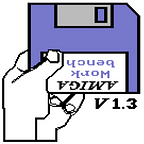When you see someone and think they need help, you can press help into their hand.
When I was fifteen my family went through a difficult era. I spent a lot of time on buses between places. Once, when I had been thrown out of one house and was on my way to another house, I had a brief visit with my grandfather. He was a tough person who had seen everything.
Who knows what we talked about. Probably just practicalities, like which bus I was taking to go from house to school. But as I left he took me aside in the front hallway and put a few dollars in my hand. He didn’t ask, just pressed it into my hand and said something like, “here you go, buddy.” I can see that moment as if it was happening now instead of a quarter-century ago. I can feel the money in my palm. The hall is dark and we are standing next to the table where they put the mail. It was an important moment in my life.
When I learned that Aaron Swartz had killed himself I immediately thought of the small yellow website that he had set up to collect donations for his legal defense. When that website went up I visited it and tried to donate $50 or $100, whatever felt right at the moment. But something went wrong with the site and the transaction didn’t complete. I tried again but no luck. I didn’t email him about it because it felt awkward.
Some months later Aaron invited me to a party, held at the company where he worked. He was there with his girlfriend. They were happy together. I asked if he could talk about his court case and he shook his head. I asked him what he was working on and he said, “I don’t know. What should I work on?” God if I knew.
I was going to say something about his broken legal defense website but I didn’t bring it up. Instead, we talked about a domain name I owned that I didn’t want any more and he said, “Well, give it to me!” So my last exchange with Aaron was over transferring that domain name. For the record it was CommentsAreClosed.com.
We were not close friends, but Aaron and I had similar interests and checked in a few times a year over a span of many years. I went to his memorial, one of several, at Cooper Union in Manhattan. It was crowded with hundreds of people, so I stood in the back. The room was filled with people who loved him, but when it was over I felt that I knew him less well than before. And now when I read something about him, whether an article, essay, or that report from MIT, I always give up halfway through. The issues his death raised—prosecutorial overreach, the responsibilities of institutions to individuals, open access rights—are important to me. But I can’t perceive his suicide as an “issue.”
This was two days ago:
“Ask if they need money,” I said to my wife.
“Actually I think they’re fine,” she said.
We were talking about her cousin, a man in his early thirties who is very ill and running out of treatment options. My wife learns about his health on Facebook, then sits next to me and tells me about what she learned. At first this happened every few months but now it’s once a week. Her cousin has three kids. I have not yet met him or his family.
“You’re sure?”
“They did that fundraiser, and he’s still getting money from work. I guess I could check.”
“Ask anyway,” I said. And I told her about Aaron’s broken website.
So she asked and it turned out her cousin’s family does need help. They don’t have much cash on hand and the work benefits have run out.
So we gave them some money.
Look, the few dollars my grandfather pressed into my hand didn’t change my situation. I probably used them to buy soda. Giving money to Aaron would not have made an observable dent in his legal fees or saved his life, just as the money we gave to my wife’s cousin won’t save his life.
This morning, as I was thinking about all of this, a woman asked me for a dollar as I walked up Coney Island Avenue, and I didn’t give her the dollar.
I try to be a generous person but often fail at it. I try to be a polite person, but I can also be a fearful person. I’ll do everything I can to avoid embarrassing others, but that isn’t the same as kindness.
When you see someone and think they need help, you can press help into their hand. They may refuse it, but you can, if you choose, press help into their hand.
